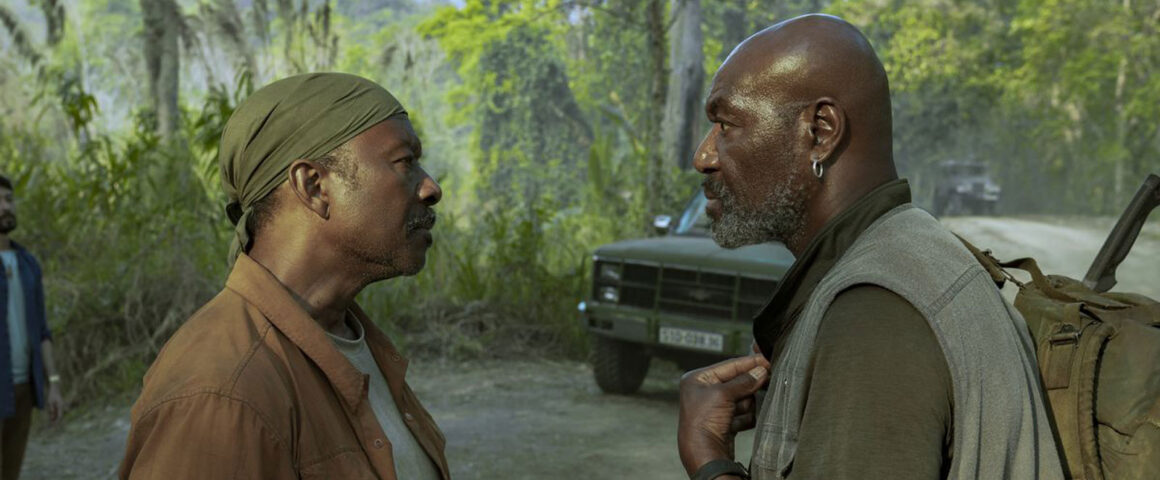Releasing on the heels of one of the country’s most assertive civil rights movements comes Da 5 Bloods, a Spike Lee (“BlacKkKlansman”) joint about one of the most overlooked groups in civil rights history: Black veterans of the Vietnam war. The film seemingly couldn’t have been released at a more relevant time as viewers can empathetically reflect on the plight of these traumatized patriots as some of their concerns of oppression are deeply entangled in the current social and political climate. No other filmmaker could have approached this type of war drama with the assertiveness and unapologetic-pride in which Lee could, giving this film an aesthetic that is harrowing, penetrable, and eerily informative. The director is certainly at his peak stylistically here — his signature dialogue fitting appropriately with the film’s era and his cut-heavy pacing being deliberately introduced throughout the film.
The two and a half-hour epic follows a group of US Army veterans — self-proclaiming themselves ‘Da 5 Bloods’ — as they search for not only the remains of the leader of their battalion, but also a massive treasure of gold the men left behind at the peak of the war. Setting this stage, Spike intertwines documentary footage of the war and the major political events that catapulted it into the massive civil rights plot in which it became. Some of this footage may be seen as over-the-top or even gruesome, but it sets the context for Lee’s heavy-handed methodology.
Spike uses a first-act littered with grainy atmospheric flashbacks and quick-cut war scenes to loosen us up for a second-half full of dense monologues and potent character moments. The gritty glimpses into the broken minds of these soldiers — Paul (Delroy Lindo, “Battlecreek”), Eddie (Norm Lewis, “Preaching to the Choir”), Otis (Clarke Peters, “Three Billboards Outside Ebbing, Missouri”) and Melvin (Isiah Whitlock Jr., “Corporate Animals”) — and their methods of coping with the mental damage war unceremoniously ladens upon participants are the most effective components of this script. But the performances by the cast make the script even more distressing and captivating than it must have been on paper. When Lee offers the perspective of the Vietnam era lens matched with Newton Thomas Sigel’s enthralling jungle-based cinematography, it feels as though the content is stripped directly from the government’s archives of footage. In addition to this, hailing Terence Blanchard’s original score as heroic, nerve-wracking, and poetic is an understatement.
Delroy Lindo is simply remarkable in his heart-wrenching portrayal of Paul and is the film’s sole star. Should his name not come up in the best leading role conversations during the upcoming award season, I will personally be offended. His performance is not raging and unnecessarily radicalized, but is rather a humbling representation of the literal under-represented. Along with Chadwick Boseman (“Black Panther”) in a supporting role as Stormin’ Norman, and up-and-coming talent Johnathan Majors (“The Last Black Man in San Francisco”) as Paul’s son David, Spike Lee is spoiled with on-screen talent more than capable of depicting his vision with a sense of delicacy and gravitas. This ultimately makes Da 5 Bloods a historical roller coaster of emotions fueled by anguish, inherited rage, and an uneasy sense of self-reflection that seems unnervingly significant and highly enlightening.



